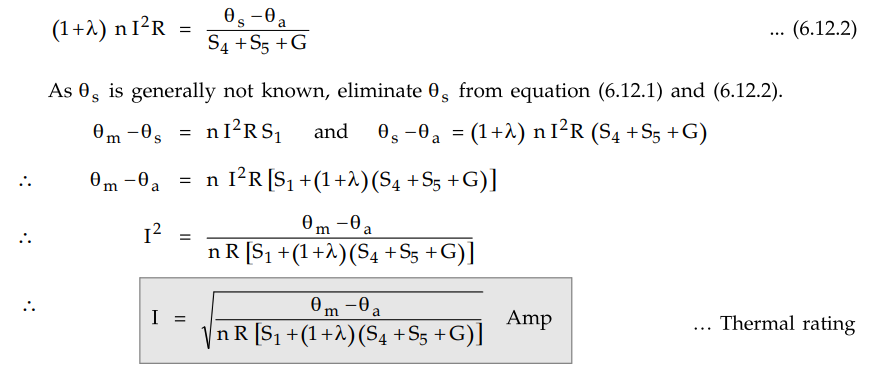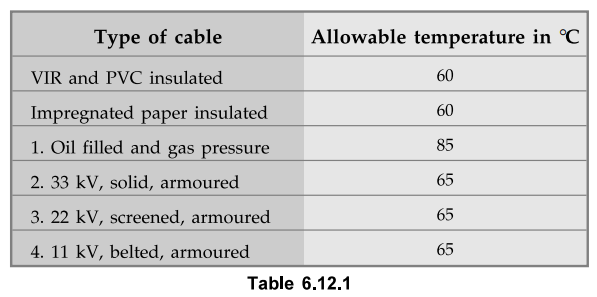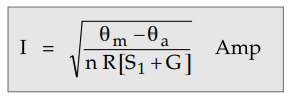Transmission and Distribution: Unit IV: Underground Cables
Current Rating of a Cable
Underground Cables
Question : 1. Write a note on thermal rating of cables.
Current Rating of a Cable
Once all the thermal resistances are
known then the current carrying capacity of a cable can be determined. When the
cables carry an excessive current the cables get heated up. It is not advisable
to operate the cable at excessively high temperature because of the following
reasons :
1. Due to high temperature, oil in the
oil filled cables get expanded and this may lead to bursting of the sheath.
2. High temperature can cause unequal
expansion which leads to the formation of voids. Such voids may lead to ionisation
and finally lead to insulation failure.
3. The dielectric losses increase with
temperature which also can lead to breakdown of insulation.
Hence the cable must be operated at a
current less than the maximum current carrying capacity of the cable.
The current rating of a cable is
dependent on the following factors,
1. The maximum permissible temperature
at which conductor insulation can be operated.
2. Heat dissipation arrangement through
the cable.
3. The ambient conditions as well as
conditions at the time of installation.
Let us see how to determine current
carrying capacity of a cable.
Let n
= Number of phases
R = Conductor resistance at 65 °C in Ω
/m
I = R.M.S. value of current in each core
Hence the total core loss is given by n
I2R.
The heat generated in the core of the
cable passes through the dielectric medium to the sheath.
Let θm
= Maximum permissible temperature of the core
θS = Sheath temperature
Then we can write,

This is the heat flowing through
bedding, serving and ground. While the total thermal resistance of bedding,
serving and ground is S4 + S5 + G. And the corresponding
temperature difference is difference between sheath temperature θS
and ambient temperature θa. Hence we can write,

This is the required current carrying
capacity of a cable.
The allowable temperature values for the
various types of cables are given in the Table 6.12.1.

Type of cable : Allowable temperature in
°C
VIR and PVC insulated - 60
Impregnated paper insulated - 60
1. Oil filled and gas pressure - 85
2. 33 kV, solid, armoured - 65
3. 22 kV, screened, armoured - 65
4. 11 kV, belted, armoured - 65
Practically the current carrying
capacity also depends on the factors like grouping and proximity of other
cables, load factor, load cycle, ambient soil temperatures in which the cable
is to lay etc.
In practice S4, S5
and λ can be neglected hence current
carrying capacity can be expressed as,

Review Question
1. Write a note on thermal rating of cables.
Transmission and Distribution: Unit IV: Underground Cables : Tag: : Underground Cables - Current Rating of a Cable
Related Topics
Related Subjects
Transmission and Distribution
EE3401 TD 4th Semester EEE Dept | 2021 Regulation | 4th Semester EEE Dept 2021 Regulation
